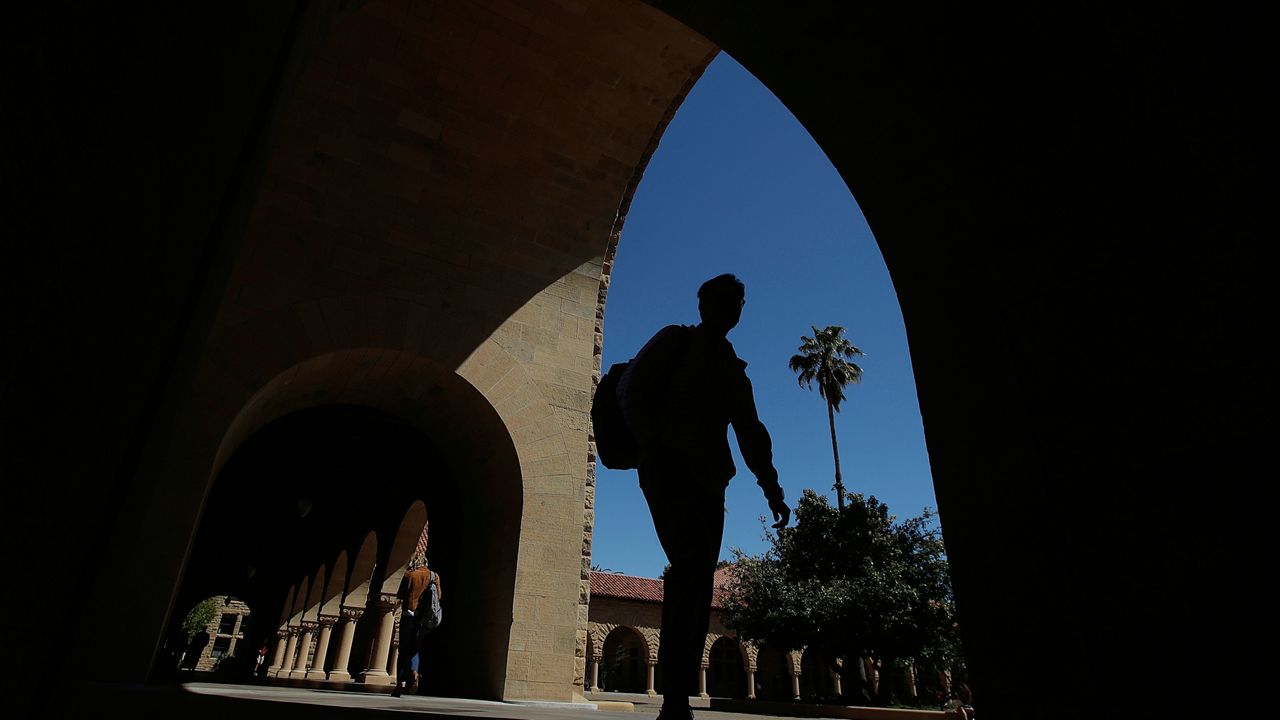President Joe Biden said Thursday that he is "considering" taking action to forgive some student loan debt, with a decision coming as soon as “the next couple of weeks.”
"I am considering dealing with some debt reduction,” the president told reporters after announcing a Congressional request for more Ukraine aid.
Biden campaigned on a promise of canceling up to $10,000 for the 43 million student loan borrowers nationwide. While he has not yet fulfilled that promise, he has taken several actions to provide student loan relief, including extending a pause on payments due to the COVID-19 pandemic.
A number of prominent Democrats, including Senate Majority Leader Chuck Schumer, D-N.Y., and former presidential candidate Sen. Elizabeth Warren, D-Mass., have urged Biden to use his authority to cancel as much as $50,000 in student debt per borrower.
Biden on Thursday said specifically that he is "not considering $50,000 in debt reduction."
Asked later in the day, the White House's top spokeswoman would not give a specific number but indicated that the president is considering a number higher than $10,000.
"He would be happy to sign a piece of legislation or a bill that came to his desk that canceled $10,000 in student loans," said press secretary Jen Psaki. "Could be more than that. We're looking at that."
She added that a decision could also come much sooner than the end of August, when a current freeze on loan payments is set to expire. But any forgiveness would likely come at least before that deadline.
Biden has already canceled more than $17 billion in student loan debt, for more than 700,000 borrowers by expanding existing loan forgiveness programs for public sector workers, borrowers who are permanently disabled and individuals defrauded by for-profit colleges.
The president has faced repeated calls from fellow Democrats, as well as advocates and student loan borrowers, to forgive some student debt — especially in the face of falling approval numbers ahead of the crucial 2022 midterms, which will determine control of Congress for the remainder of Biden’s first term.
“I'm in the process of taking a hard look at whether or not there will be additional debt forgiveness,” Biden said Thursday. "And I’ll have an answer on that in the next couple of weeks.”
One such call came in the form of a meeting with members of the Congressional Hispanic Caucus earlier this week, who urged the president to take executive action to forgive some student debt.
Rep. Nanette Barragán, D-Calif., who attended the meeting, told CNN this week that Biden was "positive" about such an idea, but did not make any specific commitments.
"The president never mentioned an amount nor did the president say that he was going to wipe out all student debt," fellow California Democrat Rep. Tony Cardenas told CBS News, which was first to report on the substance of the meeting. "He did a dialogue with us about the differential between young people who went to public schools or private schools and we CHC members said he should focus on both. And he said, 'Okay, good to know.'"
Cardenas told the outlet he urged Biden to take executive action; in response, he recalled, Biden "smiled and said, 'You're going to like what I do on that, I'm looking to do something on that and I think you're going to like what I do.'"
Republicans strongly oppose canceling student debt and some have even recently introduced legislation in the Senate to block Biden from doing so.
The bill, known as the Stop Reckless Student Loan Actions Act of 2022, would "prohibit the president from cancelling outstanding federal student loan obligations due to a national emergency." The pause in federal student loan repayment was first put into place in 2020 by then-President Donald Trump and has been extended repeatedly under President Biden's administration, with the payments set to resume after Aug. 31.
“As Americans continue to return to the workforce more than two years since the pandemic began, it is time for borrowers to resume repayment of student debt obligations,” Senate Minority Whip John Thune, R-S.D., wrote in a statement. “Taxpayers and working families should not be responsible for continuing to bear the costs associated with this suspension of repayment."
“The Biden Administration continues to call for a return to normalcy from the pandemic, while simultaneously extending emergency relief programs like the student loan repayment freeze,” North Carolina Sen. Richard Burr said. “They can’t have it both ways. Resuming student loan repayments is long overdue, especially in today’s strong job market."
"While debt relief may help many today, it almost certainly means more expensive education for the students of tomorrow," said Patrick Hedger, the executive director of the Taxpayers Protection Alliance, in a statement Thursday. "We cannot reward the waste in higher education we see today nor give future students a false hope of similar debt relief that may encourage additional reckless borrowing."



